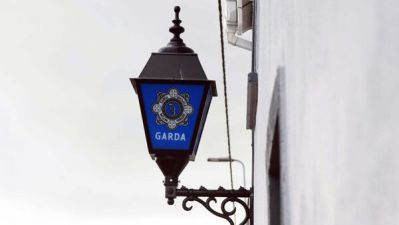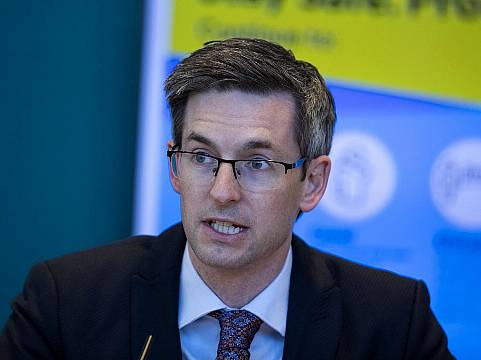The deputy chief medical officer has said there are no plans to keep County Donegal in lockdown from Monday.
Dr Ronan Glynn was speaking following a huge spike in the numbers of Covid cases in the county in recent weeks.
He also appealed to those “pushing the boundaries” to stop and to follow public health advice.
In Co Donegal, both the Milford and Letterkenny Electoral areas recorded up to five times the national average of incidence of the virus.
It led to chief medical officer, Dr Tony Holohan to tell a briefing at the Department of Health that levels of compliance in Donegal were concerning compared to the rest of the country.
“The kind of things that even the dogs on the street in Donegal know shouldn't be happening,” he added.
However, speaking today Dr Glynn said the people of Donegal must continue to work together to ensure the numbers in the county go down.
Donegal incidence rate
He referred specifically to last January when the incidence rate in the county was much greater than now at 1,600 for every 100,000.
“What happens next hopefully, is that people across Donegal and in the higher incidence areas in particular, continue doing what they have been doing and those who have been pushing the boundaries stop pushing the boundaries and heed the messages and follow the public health advice, and we get incidence down.
“It will not take much for incidence to fall pretty rapidly in Donegal. It won't take much for that to happen. This is not about threatening local lockdowns or local restrictions.
“None of us wants to go back there.
“I particularly don't want to go back there because it's the last things businesses or businesses in a county want to hear particularly at a time when we're hoping to be moving in one direction which is opening up and opening up safely and moving forward positively.
“That is one of the key reasons we raised the issues when we did raise them, so before it gets out of control and whilst it is still possible for the disease to be brought under further control and drive the incidence down in Donegal that it's done and that people locally hear the messages and do what they can to influence the profile of the disease in the coming weeks,” he said.
Dr Glynn also met and answered questions from both education and business leaders across Donegal who were concerned about the profile of the county.
Examples of recent outbreaks of the disease in Donegal were given by Dr Anthony Breslin, director of Public Health, HSE North West.
He revealed how one outbreak of 84 infections of the virus came as a result of people gathering at a wake.
Covid test
A further 32 cases of Covid came from one infected person who caught the virus at a family gathering and who then went to work while still awaiting the result of a Covid test.
A further 19 cases spread amongst a group of younger people who had gathered for an 18th birthday party.
Dr Glynn stressed that if people were going to meet in any situation that they at least meet outdoors in the coming weeks as the virus had a much-reduced chance of spreading this way.
On the setting up by gardaí of a telephone hotline to report on gatherings among the Donegal public he said anything that was done to engage the community and promote the public health message was good, but he held no firm view on the phoneline.
“Whether this will or not remains to be seen,” he added.
He added that there would not be a public health rationale to introduce more vaccinations to people or to have a quicker rollout in Donegal to stop the high rate of the virus.
“There wouldn't be a public health rationale to take vaccine away from another county or a particular age group and allocate it to Donegal at this point,” he said.

Dr Glynn said there are no plans to keep Donegal when the current restrictions are eased on Monday next.
He added that what the people of the county must do is to continue doing the right things.
He said: “If there was one overarching message to people particularly on the back of the past week and how some people are feeling is that to reiterate the fact that last January Donegal had a national incidence of 1,600 per 100,000. It's now 300 per 100,000.
Majority of people
“It is the highest in the country, but it's a magnitude lower than where it was and that's down to the work of the majority of most people doing the right things most of the time. We just want people to continue to do that and those who have been pushing the boundaries to pull back a little bit over the coming weeks, and we'll all be in a much better place by the end of May.”







